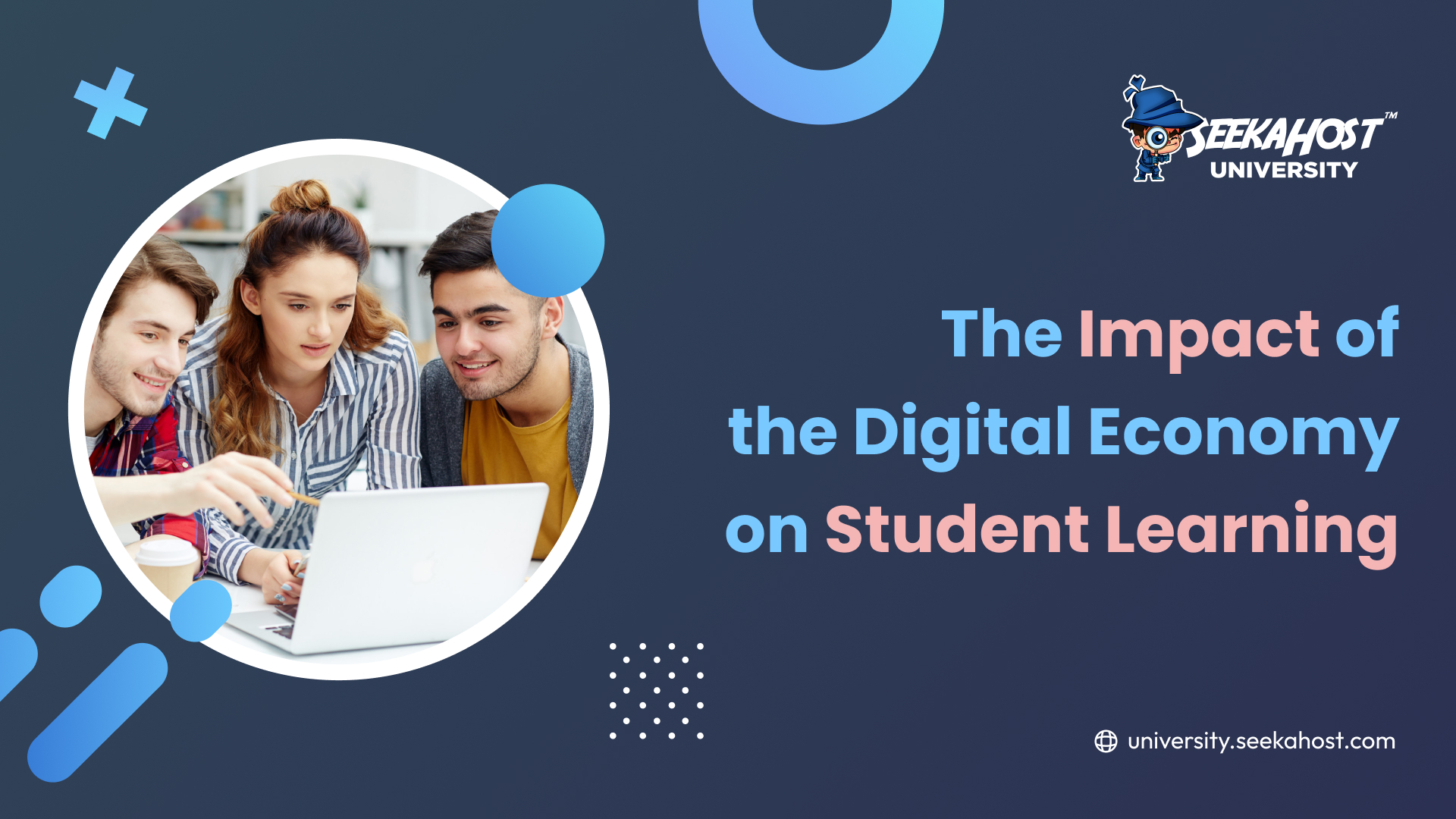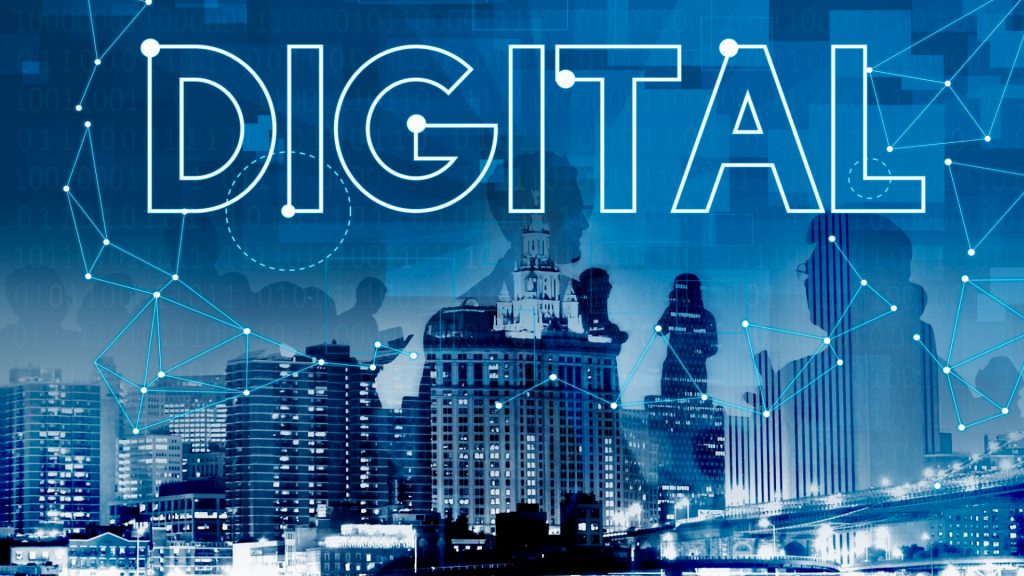
The Impact of the Digital Economy on Student Learning: A Comprehensive Guide to Future Careers and Essential Skills
In today’s rapidly evolving world, the digital economy has become a driving force behind global innovation and economic growth.
One of the most relevant segments of the digital economy is IT, software, and computer services, valued at over 42 billion British pounds in 2021 – and that’s a relatively small economy compared to the US and China for example.
As students prepare for their future careers, it is essential to understand the profound impact the digital economy has on learning, employment and the skills required to succeed.
Currently, around 2 million people are employed in the British digital economy with an upward trend.
We therefore want to explore the concept of the digital economy, its influence on student learning, and the skills students should focus on to thrive in this new era.
Understanding the Digital Economy
Definition of the Digital Economy: What is the Digital Economy?
The digital economy refers to the economic and social activities that are based on digital technologies, encompassing the production, distribution, and consumption of goods and services. It encompasses various sectors such as e-commerce, digital marketing, cloud computing, artificial intelligence (AI), blockchain, and the Internet of Things (IoT).
What are the trending sectors in the Digital Economy:

E-commerce:
The rise of online shopping platforms and marketplaces has transformed traditional retail. Companies like Amazon, Alibaba, and eBay have revolutionized the way consumers buy products and allow any business to sell via these platforms. It’s now also easier than ever to start a cheap website and turn it into an ecommerce store.
Digital Marketing:
Advertising and promotion have shifted to online platforms, including social media marketing, influencer marketing, and targeted advertising. I explain this in further details in this guide:
Remote Work and Collaboration:
The COVID-19 pandemic accelerated the adoption of remote work and virtual collaboration tools, enabling teams to work together from anywhere and making it easier to do remote online side hustles to earn.
Data Analytics:
Organizations harness vast amounts of data to gain insights, make informed decisions, and personalize customer experiences.
Artificial Intelligence and Automation:
AI and automation technologies are being integrated into various industries, enhancing efficiency, and enabling new possibilities.
Impact on Student Learning

Access to Information:
The digital economy provides students with unlimited access to vast amounts of information, enabling self-paced and personalized learning. Online resources, e-books, educational websites, and Massive Open Online Courses (MOOCs) empower students to explore diverse subjects beyond traditional classroom boundaries.
Collaborative Learning:
Digital tools facilitate collaboration among students and teachers. Virtual classrooms, video conferencing, online forums, and project management platforms enable students to engage in group projects, peer learning, and global collaboration, fostering important skills such as teamwork and communication.
Enhanced Learning Experiences:
Digital technologies, such as virtual reality (VR) and augmented reality (AR), offer immersive and interactive learning experiences. Students can explore historical sites, conduct virtual experiments, and engage in simulated scenarios that enhance understanding and engagement.
Career Exploration:
The digital economy provides students with opportunities to explore various career paths. Through online platforms, students can connect with professionals, access industry insights, and gain real-world experience through internships or remote work opportunities.
Future Careers in the Digital Economy

Data Science and Analytics:
Professionals who can analyse and interpret data are highly sought after. Skills in data science, statistical analysis, and data visualization are crucial for extracting valuable insights and informing decision-making processes.
Artificial Intelligence and Machine Learning:
AI and machine learning technologies are transforming industries, from healthcare to finance. Proficiency in programming, algorithm design, and understanding AI principles will be essential for creating innovative solutions and leveraging AI technologies.
Digital Marketing and Social Media Management:
With the growing influence of social media, organizations require professionals skilled in digital marketing strategies, content creation, social media management, and analytics to effectively engage with customers and drive business growth.
Cybersecurity:
As digital systems become increasingly interconnected, the need for cybersecurity experts intensifies. Knowledge of cybersecurity principles, encryption, network security, and risk management will be vital for protecting digital assets and ensuring data privacy.
Software Development and Programming:
Proficiency in coding and software development is a fundamental skill in the digital economy. Students should focus on learning programming languages, software development methodologies, and staying updated with emerging technologies to meet the demand for skilled developers.
Essential Skills for the Digital Economy

Critical Thinking and Problem Solving:
The digital economy requires individuals who can analyse complex problems, think critically, and develop innovative solutions. Students should hone their problem-solving skills, logical reasoning, and the ability to adapt to new challenges.
Communication and Collaboration:
Effective communication and collaboration skills are crucial in a digital environment. Students should focus on developing strong written and verbal communication skills, active listening, and the ability to work collaboratively in virtual teams.
Digital Literacy:
Digital literacy encompasses the ability to use digital tools, navigate online platforms, evaluate online information for accuracy and credibility, and practice responsible digital citizenship. Students should learn to leverage digital resources effectively and ethically.
Adaptability and Lifelong Learning:
The digital economy is characterized by rapid technological advancements. Students should cultivate a growth mindset, embrace change, and develop a passion for continuous learning. Adaptability and the ability to acquire new skills are essential for long-term success.
Creativity and Innovation:
In a highly competitive digital landscape, creativity and innovation are valued skills. Encouraging creative thinking, problem-solving, and fostering an environment that nurtures new ideas will help students stand out and drive future success.
The digital economy has revolutionized the way we live, work, and learn. Students must embrace the opportunities it offers and prepare themselves for future careers that will be shaped by digital technologies.
By understanding the impact of the digital economy on student learning, recognizing emerging trends, and focusing on essential skills, students can position themselves for a successful and fulfilling future in this digital era.
If you are new to the digital economy and skills needs to thrive in this field, you can start learning for free at SeekaHost University.
I have created some of the fundamental courses for anyone to get started in the digital economy.
Starting a website with a blog is one of the easiest and best ways to build your understanding on how the web and SEO works. You can watch this tutorial to get a better understanding why it’s so important in the digital economy and how you can make the most of it:
Do not skip the first steps when starting out online. By learning how to create a website, write and publish content using a digital device and even producing videos for platforms like YouTube, Instagram, Facebook, LinkedIn, and your website will help in many ways.
That’s why I think me starting by creating my own blog, publishing content on it and optimising it for SEO, helped me build multiple online businesses that have successfully operated in the digital economy for many years.
Check out additional digital economics trends that are shaping the current landscape to not miss out:
1. Blockchain Technology:
Blockchain is a decentralized and secure digital ledger that enables transparent and tamper-proof transactions. It has the potential to disrupt various industries, including finance, supply chain management, healthcare, and more. Blockchain provides increased security, efficiency, and trust in digital transactions.
2. Internet of Things (IoT):
IoT refers to the network of interconnected physical devices embedded with sensors, software, and connectivity, enabling them to collect and exchange data. This technology has applications in various sectors, such as smart homes, healthcare, manufacturing, and agriculture. IoT devices create vast amounts of data, leading to new opportunities for analysis and optimization.
3. Edge Computing:
Edge computing brings computational power and storage closer to the source of data generation, reducing latency and dependence on centralized cloud infrastructure. With the proliferation of IoT devices and real-time data processing requirements, edge computing enables faster response times, improved efficiency, and enhanced privacy.
4. Artificial Intelligence (AI) and Machine Learning (ML):
AI and ML technologies continue to advance and permeate various industries. They are used for automation, predictive analytics, natural language processing, computer vision, and more. AI and ML enable businesses to gain insights, improve decision-making, personalize user experiences, and automate processes.
5. Cybersecurity and Privacy:
As digital interactions increase, cybersecurity and privacy become critical concerns. The rise of cyber threats, data breaches, and privacy violations has led to a greater focus on protecting digital assets, ensuring data privacy, and complying with regulations such as the General Data Protection Regulation (GDPR) and California Consumer Privacy Act (CCPA).
6. Digital Currencies and Fintech:
The emergence of digital currencies, such as Bitcoin and Ethereum, has sparked interest in the potential of cryptocurrencies and blockchain-based financial systems. Fintech (financial technology) encompasses innovative solutions that leverage technology to enhance financial services, including mobile payments, peer-to-peer lending, robo-advisory, and decentralized finance (DeFi).
7. Augmented Reality (AR) and Virtual Reality (VR):
AR and VR technologies are transforming industries such as gaming, education, healthcare, and entertainment. They provide immersive and interactive experiences, allowing users to visualize and interact with virtual elements in the real world or enter entirely virtual environments.
8. Cloud Computing:
Cloud computing enables on-demand access to a shared pool of computing resources, including storage, applications, and services. It provides scalability, cost-efficiency, and flexibility for businesses and individuals. Cloud services such as Infrastructure as a Service (IaaS), Platform as a Service (PaaS), and Software as a Service (SaaS) have become integral parts of the digital economy.
9. Robotics and Automation:
Robotics and automation technologies are revolutionizing industries ranging from manufacturing and logistics to healthcare and agriculture. The integration of robots and automation systems improves productivity, efficiency, and precision, while also transforming job roles and requiring new skill sets.
10. Sustainable and Green Technologies:
With the growing concern for environmental sustainability, there is an increasing focus on leveraging digital technologies for sustainable practices. This includes the use of renewable energy sources, smart grid systems, energy-efficient technologies, and digital solutions for monitoring and reducing carbon footprints.
These trends highlight the ongoing evolution and impact of digital technologies on the economy. Staying informed and adaptable to these trends and changes is crucial for individuals and businesses to harness the opportunities and navigate the challenges presented by the digital economy.
Closing Thoughts
As this guide shows you, the digital economy has an increasing impact on jobs and employment, which students need to be prepared for with the right skills. Now that you know which trends and jobs are currently emerging in the digital economy, you should focus on learning the skills that will allow you to succeed.
While taking online courses at the SeekaHost University to learn the basic digital skills is a great way to gain an understanding, I recommend you also start a website or blog to practice those skills and promote them via your online CV or portfolio for example. That’s what I did and I am now a digital entrepreneur with several online businesses in this digital economy.
